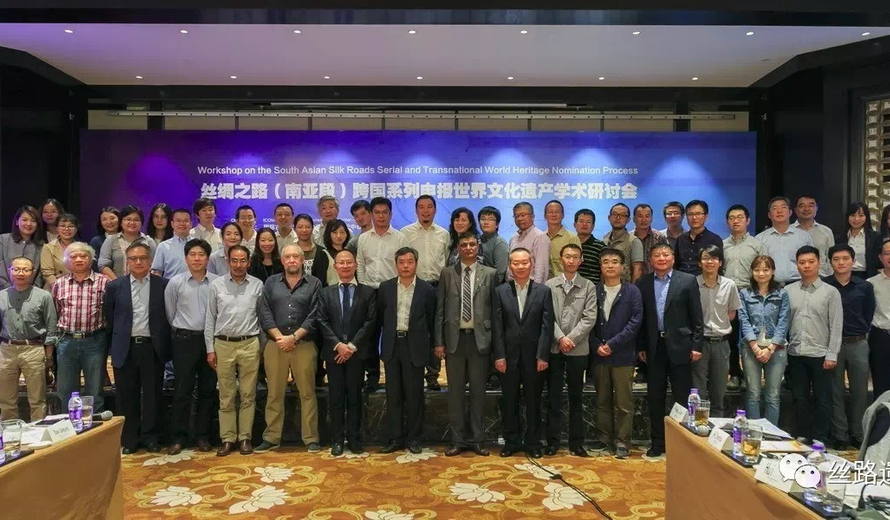Silkroads News
Workshop on the South Asian Silk Roads Serial Transnational World Heritage Nomination Process
About 60 participants from China, Nepal, ICOMOS and the UNESCO World Heritage Centre participated in a Workshop on the South Asian Silk Roads Serial Transnational World Heritage Nomination Process, Xi’an, China, 5-7 September 2017 organised by the UNESCO World Heritage Centre, State Administration of Cultural Heritage (SACH) of China, Xi’an Municipal People’s Government and the ICOMOS International Conservation Center-Xi’an (IICC Xi’an).
This was a follow-up activity to the Kathmandu Action Plan, adopted in September 2014 during the first South Asian sub-regional Silk Roads meeting in Kathmandu (Nepal), and was in line with the Almaty Agreement adopted at the 4th Coordinating Committee Meeting of the Silk Roads World Heritage Serial Transnational Nomination , held in Almaty, Kazakhstan, in November 2015.
The participants agreed on the following as the main outcomes of the meeting:
- They noted the progress made by Nepal and China for the South Asian Silk Roads Serial Transnational World Heritage Nomination Process; also noted the progress achieved with scientific documentation and archaeological survey within China, in the four key provinces of Qinghai, Sichuan, Tibet and Yunnan, as well as the research institutes and universities, notably the Chinese Academy of Cultural Heritage, the Chinese Academy of Social Sciences, ICOMOS/China, Tsinghua University, Peking University, Sichuan University and Northwest University.
- They appreciated the close consultation and coordination between China and Nepal on the preparation of the South Asian Silk Road World Heritage Nominations, along with the participation of India and Bhutan (the latter as an observer) and encourage other South Asian countries to join this nomination process.
- They noted the three heritage corridors proposed by Nepal (covering Nepal, China and India) and the three key heritage corridors sections mentioned by China: a Western section (covering Afghanistan, China, India and Pakistan); a Middle section (covering Bhutan, China, India and Nepal); and an Eastern section (covering Bangladesh, China, India and Myanmar).
- They proposed that an in-person coordination and consultation meeting be organised between the countries involved at least once a year.
- They proposed that the next meeting be held in June 2018, possibly in one of the Chinese provinces involved (Qinghai, Sichuan, Tibet or Yunnan) and encouraged the active participation of officials from Afghanistan, Bangladesh, Bhutan, China, India, Myanmar, Nepal and Pakistan in this meeting.
- They proposed to invite Mr. Bhesh Narayan Dahal, Director-General of the Department of Archaeology (DoA) of Nepal, and Mr. Song Xinchao, Deputy Director-General of the State Administration of Cultural Heritage (SACH) of China, as the two Acting Co-Chairs of the South Asian Silk Roads Serial Transnational World Heritage Nomination Process. This will have to be agreed upon during the June 2018 coordination and consultation meeting, when more officials will be in attendance.
- They encouraged IICC-Xi’an, as the Secretariat of the Serial Transnational Nomination Coordinating Committee, to launch a data system for the South Asian Silk Roads, with the purpose of technically supporting the serial and transnational nomination of South Asian Silk Roads.
Category: English
News
Silkroads News
Key words:

